Testosterone propionate: recommendations for use
Pharmacological properties
Testosterone propionate has a specific androgenic effect: it stimulates the development and function of the external genitalia, prostate, seminal vesicles and secondary male sexual characteristics (voice, hair). It is involved in the formation of the male body and sexual behaviour, increases libido and potency, and stimulates spermatogenesis. It reduces the production of LH and FSH. Testosterone antagonises female sex hormones (oestrogen) and has an anti-tumour effect on female breast tumours. It has an anabolic effect, stimulating protein synthesis, reducing fat deposits, retaining the potassium, phosphorus and sulphur required for protein synthesis, increasing calcium fixation in the bones and increasing muscle mass.
Pharmacokinetics
After injection or p.c. administration, testosterone is slowly absorbed at the injection site. Testosterone circulating in the blood enters the target organs, where it is reduced to 5-α-dihydrotestosterone, which interacts with cell membrane receptors and enters the cell nucleus. Up to 98% of the drug in blood plasma is bound to proteins, mainly globulins. It is metabolised in the liver into inactive and weakly active metabolites, which are excreted in the urine. Approximately 6% of the drug is excreted unchanged in the faeces.
Indications
Replacement therapy in cases of primary and secondary hypogonadism, eunuchoism, endocrine impotence, post-coital syndrome, male menopause, infertility due to disorders of spermatogenesis, oligospermia, osteoporosis due to androgen deficiency, breast cancer, menopausal disorders in women (in association with oestrogens), dysfunctional uterine bleeding in cases of hyperoestrogenism, mastopathy accompanied by premenstrual breast pain, endometriosis, uterine fibroids.
Application
In men suffering from eunuchoidism, congenital underdevelopment of the gonads, their removal by surgery or following trauma, and acromegaly, the drug is prescribed by injection or orally at a dose of 25-50 mg every two days or every other day. The duration of treatment depends on the effectiveness of the therapy and the nature of the disease. Once the clinical picture of testosterone has improved, propionate is administered in maintenance doses of 5-10 mg every day or every other day.
In cases of impotence of endocrine origin, as well as in cases of male menopause accompanied by vascular and nervous disorders, testosterone propionate is prescribed at a dose of 10 mg per day or 25 mg 2 to 3 times per week for 1 to 2 months.
For the treatment of male infertility, the drug is used at a dose of 10 mg twice a week for 4 to 6 months, or at a dose of 50 mg every other day for 10 days.
In the case of pathological male menopause, the drug is prescribed at a dose of 25 mg twice a week for 2 months, with a one-month break.
In the early stages of prostatic hypertrophy, 10 mg is administered once every 2 days for 1 to 2 months.
Women over 45 suffering from dysfunctional uterine bleeding are prescribed 10 to 25 mg every other day for 20 to 30 days until bleeding stops and atrophic cells appear in vaginal smears.
Contraindications
Hypersensitivity to the drug, prostate or male breast cancer, current or past history of liver tumours, severe liver dysfunction, hypercalcaemia, hypercalciuria, untreated congestive heart failure, coronary heart disease.
Side effects
On the reproductive system and mammary glands: priapism, increased sexual excitement, increased libido and frequent erections, gynaecomastia, pain in the mammary glands. When used in high doses in men, inhibition of spermatogenesis and testicular atrophy may occur. In men, androgens can cause prostatic hyperplasia and the growth of malignant prostate tumours. In women, virilisation (virilism) may be observed: hoarseness of the voice, excessive growth of facial and body hair, pasty face, suppression of ovarian function, menstrual irregularities, atrophy of mammary glands and endometrial tissue, increase in skin fat, clitoral hypertrophy. Virilisation may be irreversible even after testosterone treatment has been stopped.
Respiratory system: breathing disorders, sleep apnoea.
Musculo-skeletal system: leg pain, joint pain, muscle cramps.
Gastrointestinal disorders: diarrhoea, nausea, gastrointestinal haemorrhage.
Hepatobiliary disorders: increased aminotransferase levels, liver dysfunction, jaundice, cholestatic hepatitis, cases of liver tumours have been reported with long-term use of high doses.
Blood and lymphatic system: isolated cases of polycythaemia, tendency to thrombosis, increased haematocrit, inhibition of blood coagulation factors.
Skin and related disorders: various cutaneous reactions, including acne, seborrhoea, alopecia, itching.
Metabolism and nutrition disorders: weight gain, hypercalcaemia, glucose metabolism disorders, increase in LDL cholesterol, decrease in HDL cholesterol.
Neurological disorders: dizziness, increased sweating, headache, nervousness, depression.
General disorders and injection site disorders: pain at the injection site, subcutaneous haematoma at the injection site; prolonged treatment with testosterone propionate or its use at high doses may sometimes lead to an increased incidence of fluid retention and oedema; hypersensitivity reactions, including fever, chills and a feeling of warmth throughout the body.
Special instructions
Like all oily solutions, testosterone propionate is administered i.m. Care must be taken to ensure that the injected substance does not penetrate the vessel. Injecting the solution very slowly avoids the short-term reactions sometimes observed during or immediately after injection of the oily solution (coughing, coughing fits, respiratory depression).
Use with caution in patients with heart failure, high blood pressure, epilepsy, migraine or renal dysfunction.
In patients with a history of heart, kidney or liver failure, the use of androgens may lead to complications in the form of oedema with or without congestive heart failure. Caution should be exercised when using the drug in patients with conditions that cause fluid retention and the development of oedema. Use with caution in patients with porphyria.
During treatment with the drug, liver and kidney function, thyroid function and blood glucose levels should be monitored.
Before starting treatment in men, the possibility of prostate cancer should be excluded, as androgens increase the risk of developing prostatic hyperplasia with the use of the drug. Regular prostate examinations are recommended for preventive purposes.
In patients taking androgens for a long period, in addition to laboratory measurements of testosterone levels, the following laboratory parameters should be monitored: haemoglobin level, haematocrit (initially every 3 months, then annually) and liver function tests.
Because of a possible tendency to thrombosis, the drug should be prescribed with caution to men who have recently undergone surgery or trauma.
Drug abuse or dependence. Androgens should not be used to promote muscle development in healthy individuals or to improve physical performance.
Use during pregnancy or breast-feeding. There are insufficient data on the use of this medicinal product during pregnancy and breastfeeding. Given the characteristic virilising effect of the medicinal product on the foetus, its use is contraindicated during pregnancy or when breast-feeding. Use of the drug must be discontinued if pregnancy is diagnosed.
Children. As the safety and efficacy of the drug in children have not been studied, its use in paediatrics is not recommended. The use of testosterone in children, associated with masculinisation, may result in accelerated growth and maturation of bone tissue, as well as premature closure of the pineal growth zone, leading to a decrease in final growth.
The ability to influence reaction speed when driving a vehicle or using other mechanisms. While taking this medicine, it is advisable to refrain from driving vehicles and using other machinery.
Interactions
In association with substances which are inducers of liver microsomal enzymes (barbiturates, rifampicin, carbamazepine, phenylbutazone, phenytoin), the effect of testosterone may be weakened. In cases of severe hypogonadism, testosterone propionate may be combined with drugs that stimulate thyroid function and with oestrogens.
It enhances the effect of anabolic agents, vitamins, calcium- and phosphorus-containing drugs and slows down the elimination of cyclosporine.
Androgens can increase glucose tolerance and reduce the need for insulin or oral anti-diabetic drugs in patients with diabetes mellitus.
Androgens may affect the metabolism of other drugs (an increase in plasma concentrations of oxyphenbutazone has been observed). In addition, testosterone and its derivatives have been reported to increase the activity of oral anticoagulants, which may require dose adjustment. Irrespective of this, the restrictions associated with intravenous injections must always be respected in patients with chronic or hereditary blood coagulation disorders.
The simultaneous use of testosterone and ACTH or corticosteroids may increase the risk of oedema.
Barbiturates and alcohol reduce testosterone activity.
Overdose
When the medicine is used in high doses or over a long period of time, the side effects described in the corresponding section may occur. In this case, the medicine should be stopped and, once the androgen-dependent side effects have disappeared, continued at lower doses. If necessary, symptomatic treatment should be given.
An overdose of the drug may lead to the cessation of menstruation.
Storage conditions
In the original packaging at a temperature not exceeding 25°C.
Showing 1–12 of 6518 results
-
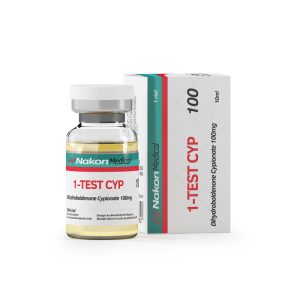
1 Test Cyp 100mg/ml – Nakon Medical Nakon Medical
€108.00 Add to cart -
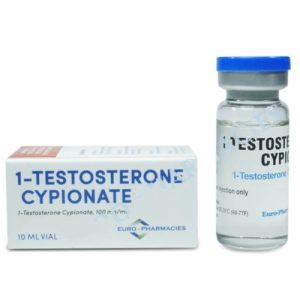
1 Testosterone Cypionate Euro Pharmacies
€33.00 Add to cart -
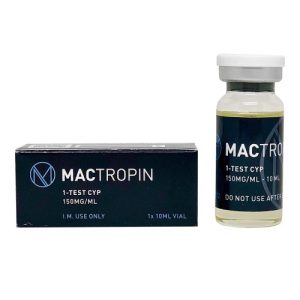
1- Test C / Dhb Mactropin
€45.00 Add to cart -
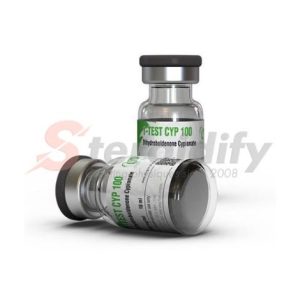
1-Test Cyp 100 Dragon Pharma
€109.00 Add to cart -
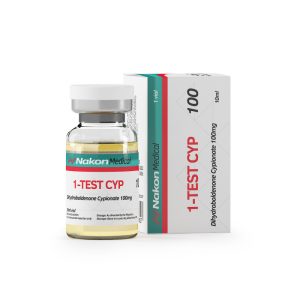
1-Test Cyp 100 Nakon Medical
€94.00 Add to cart -
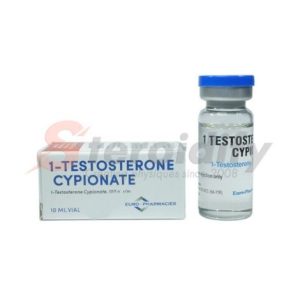
1-Testosterone Cypionate (DHB) 10ml Euro-Pharmacies
€70.00 Add to cart -
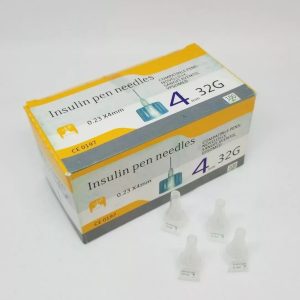
1-Testosterone Cypionate DHB 75mg/ml, 15ml/vial USA Euro-Pharmacies
€114.00 Add to cart -
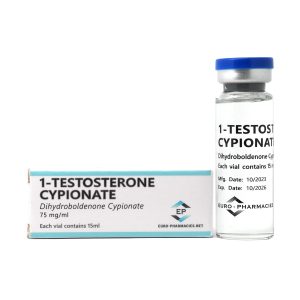
1-Testosterone Cypionate DHB 75mg/ml, 15ml/vial USA Pharmaceutical
€114.00 Add to cart -
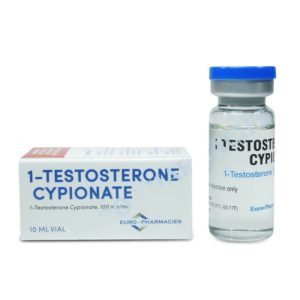
1-Testosterone Cypionate Euro-Pharmacies
€126.00 Add to cart -
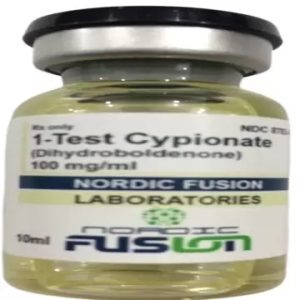
1-TESTOSTERONE CYPIONATE NORDIC FUSION
€69.00 Add to cart -
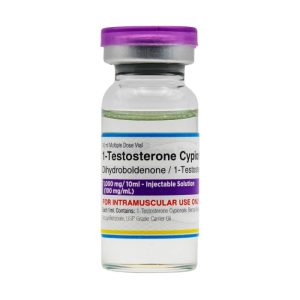
1-Testosterone Cypionate Pharmaqo
€103.00 Add to cart -

10 amp-1-Testosterone Cypionate (DHB) – 100mg/ml 1ml-amp EU Euro-Pharmacies
€66.00 Add to cart
